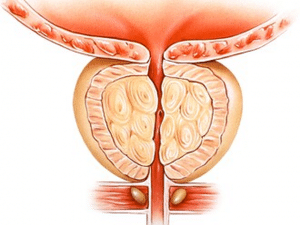Prostatectomy
Prostatectomy in Iran
Best prostatectomy hospital in Iran
More than 2,500 Iranian and foreign patients go under prostatectomy hospitals in Iran each year. prostatectomy in Iran is on top of the Middle East regarding its skilled specialists and surgeons.
- Treata Professional Hospital
- Gandi Hospital
- Moheb Mehr Hospital
Prostatectomy cost in Iran
There is a significant difference between the cost of prostatectomy in Iran and other countries. The most important factors for the low price of it in Iran are:
- A large number of prostatectomy hospitals in Iran.
- A large number of applicants for prostatectomy in Iran.
Prostatectomy cost in Iran varies depending on the prostatectomy and the hospital. The average cost of prostatectomy in Iran is $4000.
Prostatectomy cost in Iran in comparison with other countries
This surgery costs $40000 in the U.S., $35000 in Europe, $20000 in Thailand, and $16000 in Turkey.
Best prostatectomy surgeon in Iran
More than 24,000 urology surgeries are being performed each year in Iran. Experienced Iranian doctors with an excellent record are performing the operations. One of the most important factors for choosing a good surgeon for prostatectomy in Iran is a doctor has done many prostatectomies. You can find the best doctors for prostatectomy in Iran on our website by following their experiences.
Why should you travel to Iran for a prostatectomy?
Many patients travel to Iran for prostatectomy. One of the reasons for this matter is Iranian specialists and surgeons who have high surgery success rates.
- Low cost of prostatectomy in Iran
- Low cost of accommodation in Iran
- Well experienced doctors
- The high number of prostatectomies in Iran
prostatectomy centers accordance with today’s European standards are performing the highest quality operations in Iran. Another reason for prostatectomy in Iran is its lower cost compared to other countries.

About Prostatectomy
The prostate gland is located between the bladder and the penis and in front of the rectum. The prostate gland secretes a fluid that protects and nourishes the sperm and helps produce semen. Prostate cancer is one of the most common types of cancer in men. Prostate cancer is usually a prolonged growing cancer, often causing no symptoms until it is in an advanced stage. Prostatectomy is one of the most definite treatments for prostate cancer.
Types of Prostatectomy
- Open prostatectomy: In this traditional method of radical prostatectomy, the surgeon makes a vertical 8- to 10-inch incision below the belly button. Radical prostatectomy is performed through this incision. In rare cases, the incision is made in the perineum, the space between the scrotum and anus.
- Laparoscopic prostatectomy: In laparoscopic prostatectomy, surgeons make several small incisions across the belly. Surgical tools and a camera are inserted through the incisions, and radical prostatectomy is performed from outside the body. The surgeon views the entire operation on a video screen.
- Robot-assisted laparoscopic prostatectomy: Small incisions are made in the belly, as in regular laparoscopic prostatectomy. A surgeon controls an advanced robotic system of surgical tools from outside the body. A high-tech interface lets the surgeon use natural wrist movements and a 3-D screen during radical prostatectomy.
Recommended for
Individuals who have prostate cancer.
Before Prostatectomy
The surgeon may use a visual scope to look inside your urethra and bladder to check the size of the prostate and examine the urinary system. Blood tests may be required too. Patients will be asked to fast for 8 hours before the procedure, generally after midnight. Patients should stop smoking as soon as possible prior to the procedure to improve the chances for a successful recovery from surgery and to improve overall health status. Patients should stop taking certain medications such as Aspirin, anti-inflammatory drugs, and herbal supplements before the surgery.
During Prostatectomy
The patients undergo general anesthesia during the procedure. The surgeon chooses one of the three types of radical prostatectomy based on the patient’s condition.
Recovery
Patients usually should stay at the hospital for one to three days after the procedure. A urinary catheter is inserted during the procedure, and it should be worn for several days. The surgeon will prescribe some painkillers to control the pain. It can take weeks or months for urinary and sexual function to return to their maximum levels.